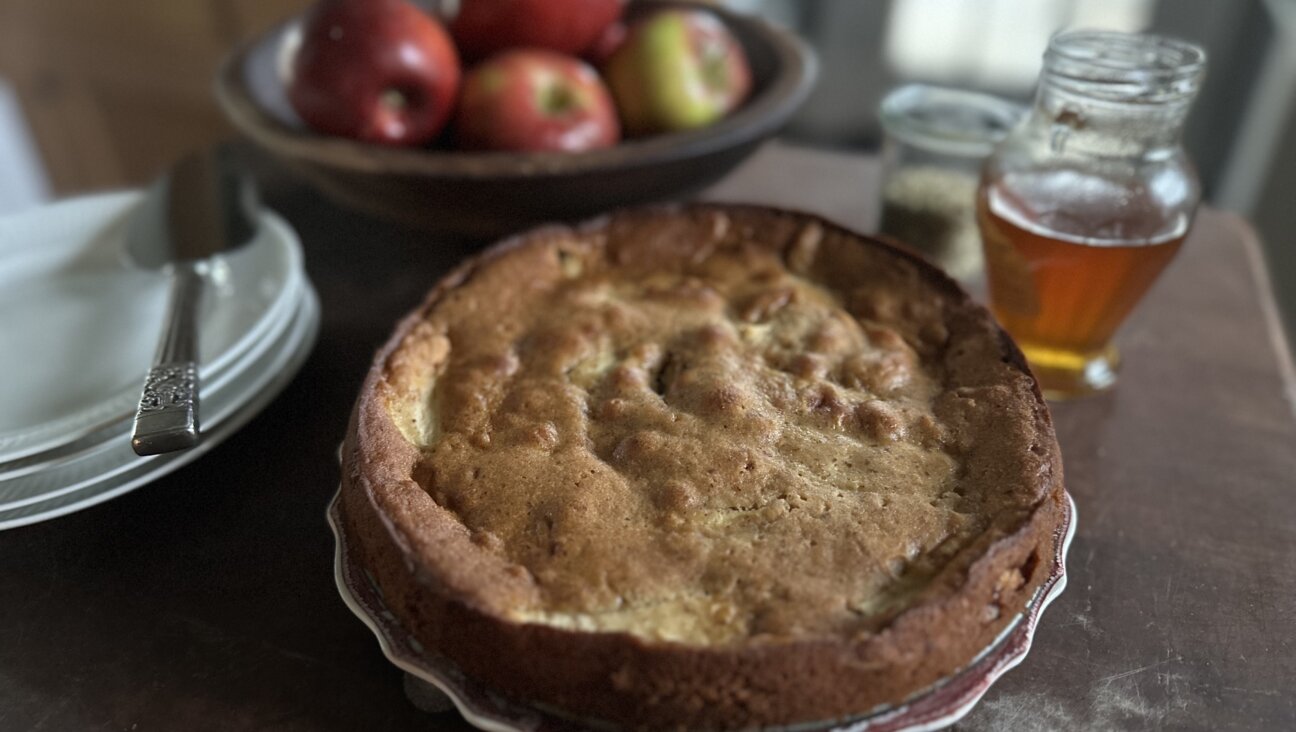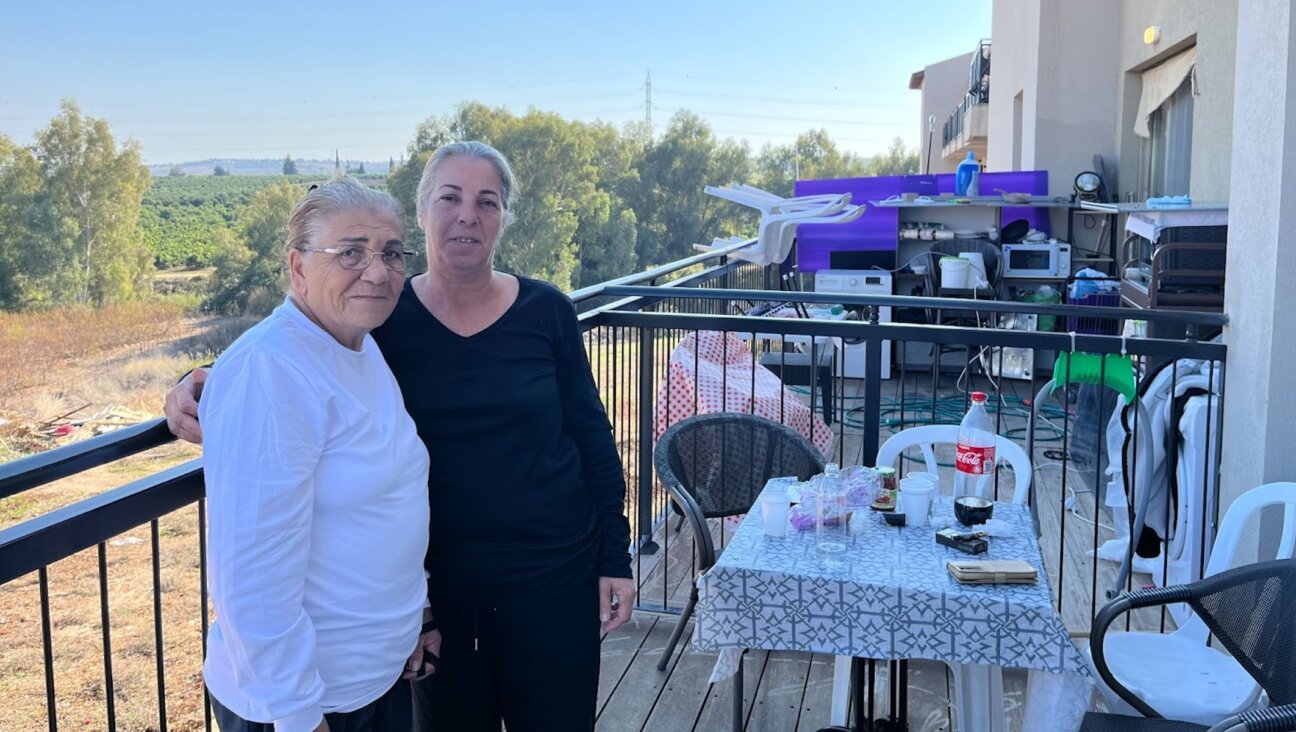Teaching the Next Generation To Cook
My 3-year-old daughter clambers into the car at the end of a long day, asks me what’s for dinner. When I tell her turkey burgers, her voice gets hopeful. “We cook it?” No, I made it the night before. But, she reminds me that we bought the ingredients together in the store. As I begin to worry about a child-sized guilt trip, she is happily chatting away about something else.
Liora loves to be in the kitchen with me. No matter how beloved the play date, if she sees me head for the cutting board, she is dragging her stool next to me to be able to watch what is being chopped on the counter. She mixes scrambled eggs, rolls out (and mushes) cookie dough, and gets her hands sticky with ricotta gnocchi. One of her favorite bedtime stories is a book from PJ Library about baking challah, “It’s Challah Time”; and I am trying to muster the courage to actually try out the cupcake decorating set she got for Hanukkah.
With my big girl as my sous chef, I often reflect on the passage in the Talmud that outlines the responsibilities of parents to their children: teaching them Torah, providing them with a trade and getting them married (some also say: teaching them to swim). To my ear, this sounds like parents are required to provide their kids with the skills to live productive, independent lives, and so teaching my kids to cook falls naturally for me into this mitzvah. I don’t need to raise a gourmet cook, but I think basic life skills include knowing how to scramble an egg and make tomato sauce from scratch. So much of Jewish traditio,n particularly among women, has been passed down through cooking and eating together. What happens in the kitchen is an ongoing collective memory, and it is my responsibility to adapt and pass that along as much as I pass along the importance of Shabbat or tzedakah.
With childhood obesity rates rising, how and what kids eat is heavily scrutinized. We are told that kids are more likely to eat food that they have helped buy and prepare themselves, but I know from personal experience (and my kids are not picky eaters) that there is not always a straight line between helping cook something and actually eating it. Given how competitive contemporary parenting can be, I worry that saying that I cook with Liora will be seen as bragging about raising a precocious sustainable Jewish foodie, rather than a simple description of what my daughter and I do during our time together. My kid cooks for the same reason other kids watch football or play dress up: to imitate and spend time with their parents. There is no agenda here, just life in motion.
But isn’t the kitchen dangerous? A friend of mine with a child Liora’s age recently asked me how I taught her not to touch the pan, given how well 3 year olds follow instructions. While I have reminded her many times that the stove and the oven are hot, and that not following Mummy’s instructions means no cooking, what has convinced her not to touch the pan is having accidentally touched it. Not enough to hurt herself, but enough to now be the one warning me “Stand back, very hot, no touch it.”
Cooking with your kids requires letting go, and trust. After all, they can’t learn to swim if you never let them out of your arms.
Teaching the next generation to cook has to be part of a Jewish food mindfulness and an essential part of independence, not a niche skill for those who have the time. It is not enough that the ingredients be sustainable but that we nurture the understanding of how that food got into our mouths, not just the farmers who grow the food but the people who prepare it. If our kids cook with us, we ensure that they know that not all food comes from a package at the store, and that they can be part of the creative process of food. Indeed, they will see that food is creative, an art form like painting or music. By cooking with their parents, they will learn family stories and write new ones. It becomes part of their personal Torah, the heritage they leave to the next generation.
Cookbook Recommendations for Kids:
• Mollie Katzen, of Moosewood fame, has written two cookbooks for younger kids that simple have illustrated instructions alongside the recipe. All of her recipes are vegetarian, though not vegan: “Pretend Soup and Other Real Recipes,” and “Salad People and More Real Recipes,” by Molly Katzen
• There are several Sesame Street cookbooks but this one goes beyond cookies and other snack food: “‘C’ is for Cooking,” by Susan McQuillan and the Sesame Workshop
• Another good kids cookbook: “Kosher by Design Kids in the Kitchen,” by Susie Fishbein
• This is not a kids’ cookbook, but it inspired me to first take up knife and skillet when I was in high school, and older kids will find it funny: “In the Kitchen with Miss Piggy,” by Moi
Rabbi Rachel Kahn-Troster is Director of Education and Outreach for [Rabbis for Human Rights-North America][5]. She serves on the board of Hazon.
A message from our Publisher & CEO Rachel Fishman Feddersen

I hope you appreciated this article. Before you go, I’d like to ask you to please support the Forward’s award-winning, nonprofit journalism during this critical time.
We’ve set a goal to raise $260,000 by December 31. That’s an ambitious goal, but one that will give us the resources we need to invest in the high quality news, opinion, analysis and cultural coverage that isn’t available anywhere else.
If you feel inspired to make an impact, now is the time to give something back. Join us as a member at your most generous level.
— Rachel Fishman Feddersen, Publisher and CEO
























